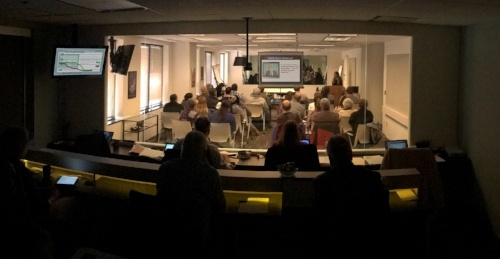Many people are familiar with mock trials, which are full-blown exercises before a trial in which witnesses are presented and arguments made before mock jurors, who proceed to render a “verdict.” The results of mock trials, as we have discussed here before, can be extremely helpful to litigators who want to know how strong their case is, which arguments and testimony to pursue at trial, and which ones to forget about.
As Slate magazine wrote in an illuminating article in 2005:
Either side of a case can hold a simulated trial, and they're used in both civil and criminal cases. But because these productions can cost quite a bit of money, they're most often used by lawyers who represent wealthy clients or companies in a civil suit. First, the attorneys find a random pool of mock jurors in the jurisdiction where the trial will be held. Participants are selected by random telephone calls, classified ads, or through an employment agency. (Anyone who has recently received a summons to serve as a real juror is immediately disqualified.)
Another technique that is perhaps not as well known is the early-stage focus group. These are far less formal than mock trials. They are a bit like brainstorming sessions in which jurors tell trial lawyers, often in real time, what they thought about a particular piece of evidence or a particular argument.
Focus groups have several advantages:
- They give lawyers quick and highly useful information very early in the case so that the lawyers can plan their case from the start.
- They are much less expensive than full mock trials. They take no more than a day, while mock trials can take several days. They probably cost about 20 percent of what a mock trial would cost.
- They serve as an immediate reality check for lawyers during their case preparation. A lawyer who is thinking too theoretically about the case will quickly come back to earth after hearing what real people think of a theme that he or she is planning to use at trial.
- They can serve as an invaluable guide to discovery and to conducting depositions.
- They can provide immediate feedback on a particular document or line of examination. A lawyer can interrupt the focus group at any point and simply as the jurors, “What did you think of that series of questions?”
A focus group can unearth problems that may be lurking in your case – and can do so in plenty of time for the trial team to fix them.
It can also test the persuasiveness of various lines of argument, using jurors from the vicinity of the trial, that may reflect significant regional variations. For example, you may represent an American company that asserts that a foreign company misappropriated its intellectual property. How well will jurors in your jurisdiction respond to an argument based on the fact that the defendant is based abroad and victimized an American company? A focus group may be the best way to answer that question.





Leave a Comment